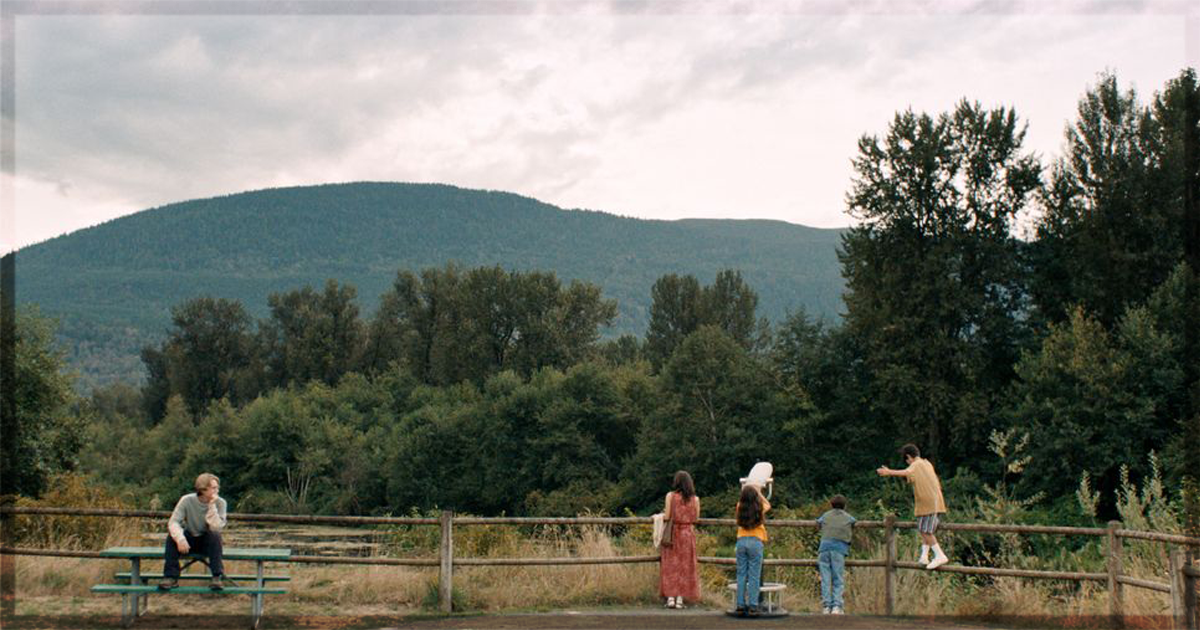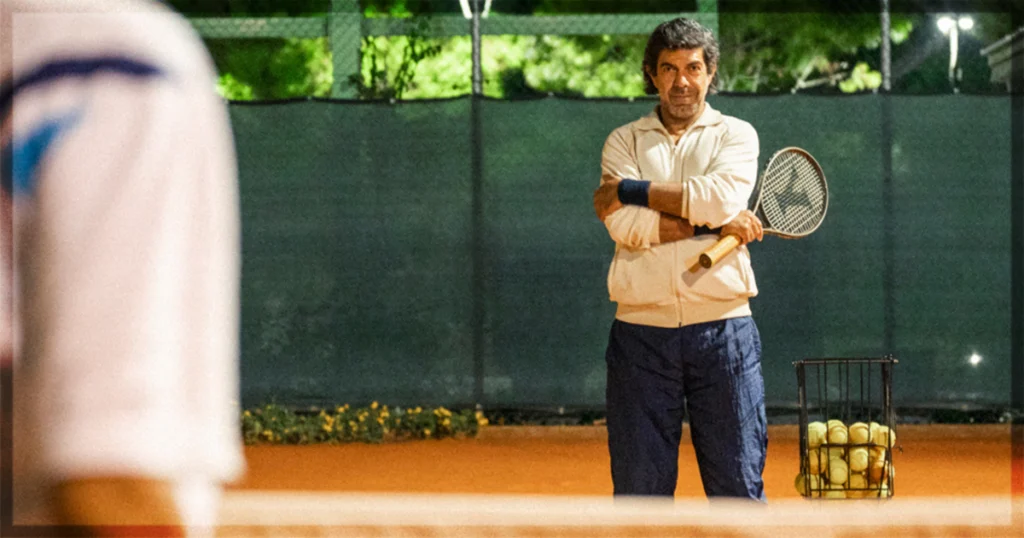Even before her debut feature, Sophy Romvari has become a highly regarded upcoming director among the online cinephiles. Her shorts Norman Norman, Still Processing, and It’s What Each Person Needs were part of the selections at the Toronto International Film Festival. Criterion Channel acquired some of her other films, such as Pumpkin Movie, It’s Him, Grandma’s House, and Rememberance of József Romvári, and they are part of their streaming slate. The young Canadian filmmaker has built a reputation surrounding her work, particularly through the connection between her cinema and the study of memory. In a sense, Romvari continues her thematical delve into remembrance with her debut feature, Blue Heron, which is one of the most anticipated films from the fall festival season. It had its World Premiere at the Locarno Film Festival.
Her debut feature film tells the story of a Hungarian family of six who are moving to their new home on Vancouver Island. We follow the narrative from the perspective of Sasha (Eylul Guven/Amy Zimmer), a young child who wants to explore the new community and make friends. However, the family notices the dangerous behaviors from the oldest child, Jeremy (Edik Beddoes). The story shifts between different timelines to comprehend the problems of settling into this new life and how it affected the older son. Romvari crafts a glimpse into the fragmented childhood of a girl who observes the struggles in her familiar environment. The director works with two different chronological organizations: the past and the present. Hence, there is a thin line between the emotional impact on how Jeremy has been affected, and how those situations affected who Sasha became. This differentiation is crucial to highlighting the emotional baggage of the film, expanding its complexity, and achieving an efficacious dramatic result.
Firstly, there is an unmistakable division between the two parts: past and present. The past features the curiosity of a small girl in a new universe. Sasha welcomes a new horizon of possibilities with new friends, playing with water, and visiting the nature around her. She enjoys the cold beaches of the island, where she experiences the natural joys of Vancouver. Yet, amidst the unveiling of this new world, she experiences a fractured house. Her mother is overworked; she has to organize the hundreds of cardboard boxes, settle four children into a new routine, and also get used to the Canadian reality, which is different from her Hungarian past. Still, the collapse of the new reality comes when Jeremy faces mental health problems. The boy has a different background from his three siblings, resulting in a cognitive response to this new life. At first, a simplistic comparison comes to Charlotte Wells‘ Aftersun, a film about memory and loss. Nevertheless, Sophy Romvari presents a mature conduction of her storytelling in the second half of the film, reaching an emotional peak with the nuclear family plot.
The present is a search for answers. Sasha, now played by Amy Zimmer, studies Jeremy’s case and interviews her parents to understand the situation. Her older brother’s problems affect Sasha to investigate through filmmaking; she records professionals’ responses to help comprehend his behavior. Hence, in the interrogation with her parents, Romvari finds the precise climax to a film about guilt and understanding the past through regret. The director plays with the perception of her audience over time; is this conversation happening in the present or the past? Ultimately, it does not matter. It provides room for comprehension and the cinematic beauty of manipulating memory, which is a central topic for the director. Sasha is searching to fill the gaps in her recollections, the moments she cannot remember or could not understand at that time. More importantly, the return to the old house is a connection with the young Sasha, who would be overwhelmed by the tensions and could not turn the oven off. It demonstrates a woman in peace with the responses. Yet, it works due to the brilliant performance by Amy Zimmer, who interprets a woman holding fascination, curiosity, pain, and regret for the entirety of her life in that house on Vancouver Island.
In its entirety, Blue Heron shifts from the nostalgic recollections of infancy to the pains of mental health stigma, loss, and confronting the family. As a whole, it delivers a deliciously precious work on memory, showcasing Romvari’s ability to manipulate remembrances, utilizing the seventh art as a tool to expand the recordings of the human brain. The director finally released her debut feature after a long journey of producing short films, which garnered her an undisputed reputation with film critics. Finally, her first feature film becomes one of the best debuts of the year, demonstrating the Canadian author’s ability to create emotion through the familiar dramas.
Blue Heron recently played at the Locarno Film Festival.
Learn more about the title at the Locarno site for the film.
You might also like…
‘Il Maestro’ Review: A Coming of Age Through Tennis Film


